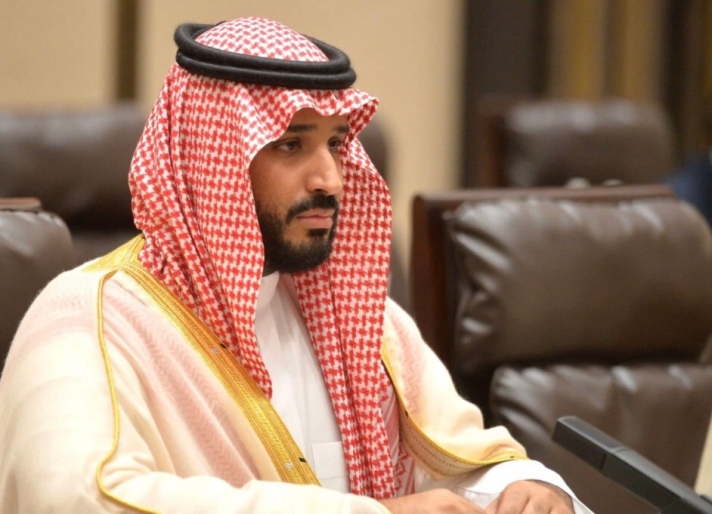 Report: China helped Saudi Arabia build a nuclear facility to process yellowcake uranium
Report: China helped Saudi Arabia build a nuclear facility to process yellowcake uranium
Saudi Arabia has reportedly accepted Chinese help in creating a new facility for extracting yellowcake from uranium ore, according to western intelligence officials who spoke with the Wall Street Journal.
The Saudi Arabian facility alleged to be handing the yellowcake uranium, an intermediate component of nuclear development, is located in area in Saudi Arabia’s northwest. Saudi Arabia has not confirmed or publicly disclosed the alleged nuclear facility and western officials believe the facility was established with secretive Chinese help.
Yellowcake processing could be indicative of Saudi moves to develop nuclear power or a nuclear weapon. Saudi Arabia has raised concerns about Iran’s potential for developing nuclear weapons. Saudi Crown Prince Mohammed bin Salman warned in 2018 “if Iran developed a nuclear bomb, we will follow suit as soon as possible.”
Indications China participated in the development of the yellowcake facility could also raise concerns.
A State Department official declined to provide a specific comment about the nuclear development allegations, but the official did tell the Journal that the U.S. has warned its partners against working with China’s civilian nuclear establishment.
It is not entirely clear which Chinese entities participated in building the alleged Saudi nuclear facility, but the state-owned China National Nuclear Corp. signed a memorandum of understanding with Saudi Arabia in 2017 to help explore its uranium deposits. Saudi Arabia has also formed agreements with the state-owned China Nuclear Engineering Group Corp. and Riyadh and Beijing did sign onto a 2012 pact to cooperate on developing peaceful uses for nuclear energy.
In a statement to the Journal, the Saudi Energy Ministry “categorically” denied the creation of the yellowcake facility, but said mineral extraction, including uranium extraction, is part of the country’s economic strategy. The Saudi government statement did acknowledge working with China on uranium exploration but declined to elaborate further.
Saudi Arabia does not have any known nuclear weapons program, nor does it officially have any operating nuclear reactors or capacity to enrich uranium, though the Saudi government has expressed interest in acquiring nuclear power to generate power and reduce reliance on its oil.
Nuclear nonproliferation experts told the Journal a Saudi Arabian yellowcake facility would not violate any international agreements the Saudi government has signed. Saudi Arabia has only agreed to a small number of limits on nuclear development, such as an outdated version of the Small Quantities Protocol, which does not require signatories to disclose yellowcake facilities.
President Donald Trump’s administration has suggested selling nuclear reactors and equipment to Saudi Arabia, but U.S. arms-control negotiator Marshall Billingslea also said at a July 21, hearing that the U.S. would not take such action until Saudi Arabia agrees to requirements, referred to as the “Gold Standard,” which establish nuclear safeguards and prohibit to development of nuclear weapons.
Saudi efforts to expand their nuclear capabilities may represent a “longer-term hedge against a nuclear Iran,” Ian Stewart, of the James Martin Center for Nonproliferation Studies, told the Journal. Stewart also said a yellowcake facility is “another step in the direction of having an indigenous uranium enrichment program.”
Olli Heinonen, the former deputy director of the International Atomic Energy Agency (IAEA), also told the Journal that a yellowcake facility is indicative of Saudi efforts to keep the option of a nuclear Saudi Arabia open.
Heinonen said if Saudi Arabia’s intentions with its nuclear program are peaceful, they should disclose their nuclear facilities.
“Where is the transparency?” Heinonen asked. “If you claim your program is peaceful, why not show what you have?”
No comments:
Post a Comment